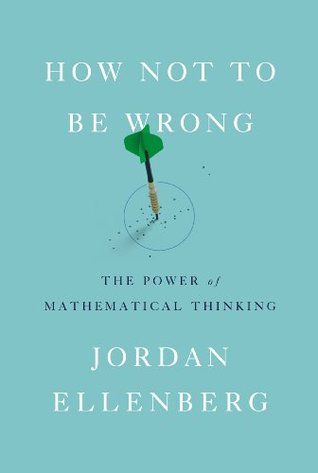More on this book
Community
Kindle Notes & Highlights
Read between
December 24, 2021 - January 18, 2022
Nonlinear thinking means which way you should go depends on where you already are.
(Aside: it’s important to point out here that people with out-of-the-mainstream ideas who compare themselves to Edison and Galileo are never actually right. I get letters with this kind of language at least once a month, usually from people who have “proofs” of mathematical statements that have been known for hundreds of years to be false. I can guarantee you Einstein did not go around telling people, “Look, I know this theory of general relativity sounds wacky, but that’s what they said about Galileo!”)
That statement is also 100% true! But it’s designed to create a false impression. So “true but false” is a pretty fair assessment. It’s the right answer to the wrong question. Which makes it worse, in a way, than a plain miscalculation.
Dividing one number by another is mere computation; figuring out what you should divide by what is mathematics.
It’s creepy and bad when you’re pregnant and Target knows you’re pregnant. But it’s even creepier and worse if you’re not a terrorist and Facebook thinks you are.
But if we took this approach seriously, we would tell our tenth graders something like this: “Some have argued that it’s highly unlikely for something as complex as the Earth’s biosphere to have arisen purely by natural selection without any intervention from outside. By far the most likely such explanation is that we are actually not physical beings at all, but residents of a computer simulation being carried out by humans with unthinkably advanced technology, to what purpose we can’t exactly know. It’s also possible that we were created by a community of gods, something like those worshiped
...more
the old joke about the physicist tasked with optimizing dairy production: he begins, with great confidence, “Consider a spherical cow . . .”
IF GAMBLING IS EXCITING, YOU’RE DOING IT WRONG
a rich man of one hundred thousand ecus income is not ten times happier than the man of only ten thousand ecus; there is more than that what money is, as soon as one passes certain limits it has almost no real value, and cannot increase the well-being of its possessor; a man that discovered a mountain of gold would not be richer than the one that found only one cubic fathom.
The rich person, who has enough reserves to absorb those occasional losses, invests and gets richer; the nonrich people stay right where they are.
As the old saying goes, if you’re down a million bucks, it’s your problem; but if you’re down five billion bucks, it’s the government’s problem.
I’m rooting for orthogonal to catch on. It’s been a while since a mathy word really broke out into demotic English. Lowest common denominator has by now lost its mathematical flavor almost entirely, and exponentially—just don’t get me started on exponentially.*
If correlation were transitive, medical research would be a lot easier than it actually is. Decades of observation and data collection have given us lots of known correlations to work with. If we had transitivity, doctors could just chain these together into reliable interventions.
We know that women’s estrogen levels are correlated with lower risk of heart disease, and we know that hormone replacement therapy can raise those levels, so you might expect hormone replacement therapy to be protective against heart disease. And, indeed, that used to be conventional clinical wisdom. But the truth, as you’ve probably heard, is a lot more complicated. In the early 2000s, the Women’s Health Initiative, a long-term study involving a gigantic randomized clinical trial, reported that hormone replacement therapy with estrogen and progestin appeared actually to increase the risk of
...more
I think we need more math majors who don’t become mathematicians. More math major doctors, more math major high school teachers, more math major CEOs, more math major senators.
The cult of the genius also tends to undervalue hard work. When I was starting out, I thought “hardworking” was a kind of veiled insult—something to say about a student when you can’t honestly say they’re smart. But the ability to work hard—to keep one’s whole attention and energy focused on a problem, systematically turning it over and over and pushing at everything that looks like a crack, despite the lack of outward signs of progress—is not a skill everybody has. Psychologists nowadays call it “grit,” and it’s impossible to do math without it.
As the philosopher W. V. O. Quine put it, “To believe something is to believe that it is true; therefore a reasonable person believes each of his beliefs to be true; yet experience has taught him to expect that some of his beliefs, he knows not which, will turn out to be false. A reasonable person believes, in short, that each of his beliefs is true and that some of them are false.”
The opposing ideas he has in mind there are “the sense of futility of effort and the sense of the necessity to struggle.” Samuel Beckett later put it more succinctly: “I can’t go on, I’ll go on.” Fitzgerald’s characterization of a “first-rate intelligence” is meant to deny his own intelligence that designation; as he saw it, the pressure of the contradiction had made him effectively cease to exist, like Frege’s set theory or a computer downed by Kirkian paradox. (The Housemartins, elsewhere in “Sitting on a Fence,” more or less summarize “The Crack-Up”: “I lied to myself right from the start /
...more


